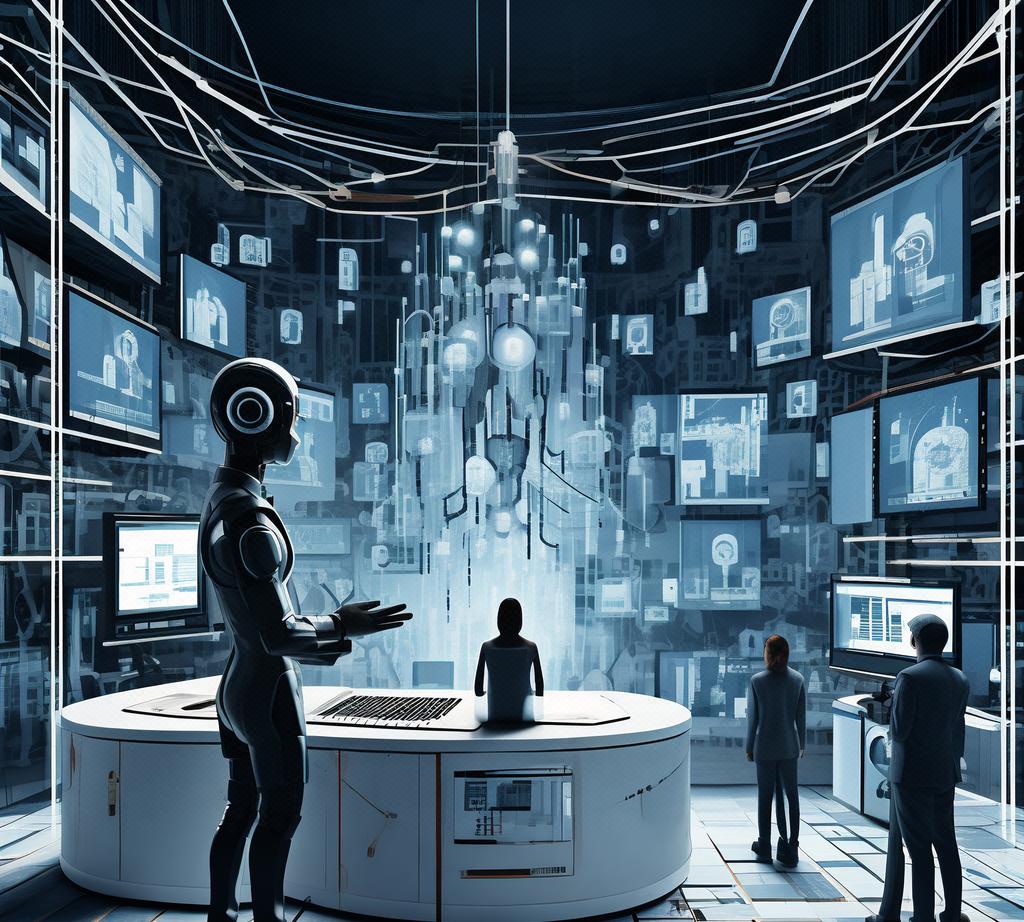AI代理经济:重塑商业运营的新范式
The Rise of AI Agentic Economy: A Paradigm Shift in Business Operations

Introduction
In the rapidly evolving digital landscape, Artificial Intelligence (AI) has emerged as a transformative force, reshaping industries and redefining business operations. One of the most intriguing developments in this domain is the rise of the AI Agentic Economy. This economic model, characterized by the proliferation of AI agents that act on behalf of humans, promises to revolutionize how we interact with technology and conduct business. In this article, we will delve into the intricacies of the AI Agentic Economy, exploring its definition, implications, and potential impact on various sectors.
What is the AI Agentic Economy?
The AI Agentic Economy refers to an economic system where AI agents play a pivotal role in facilitating transactions, making decisions, and managing resources on behalf of humans. These AI agents are sophisticated software entities equipped with machine learning algorithms and natural language processing capabilities, enabling them to understand, interpret, and respond to human needs and preferences with unprecedented accuracy.
The Rise of AI Agents
The rise of AI agents can be attributed to several factors, including advancements in AI technology, increasing computational power, and the availability of vast amounts of data. These agents are now capable of performing complex tasks such as customer service, financial trading, supply chain management, and even creative work like writing and design.
For instance, consider the case of virtual assistants like Siri and Alexa. These AI agents have become integral parts of our daily lives, providing information, setting reminders, and controlling smart home devices. Similarly, AI-driven chatbots are revolutionizing customer service, handling inquiries and resolving issues in real-time, thereby enhancing customer satisfaction and reducing operational costs.
Implications of the AI Agentic Economy
The implications of the AI Agentic Economy are profound and multifaceted. Here are some key areas where AI agents are expected to have a significant impact:
1. Business Operations
AI agents can optimize business processes by automating repetitive tasks, predicting market trends, and making data-driven decisions. This can lead to increased efficiency, reduced costs, and improved competitiveness. For example, a study by McKinsey Global Institute found that AI-driven automation could increase productivity by 40% across various industries by 2030.
2. Customer Experience
By understanding and anticipating customer needs, AI agents can deliver personalized experiences that enhance satisfaction and loyalty. For example, AI-powered recommendation engines can suggest products and services based on individual preferences. According to a report by Gartner, customer experience will be a primary differentiator for businesses by 2025.
3. Financial Services
AI agents are transforming the financial sector by automating trading, managing portfolios, and providing real-time insights into market dynamics. This can lead to better investment returns and reduced risks. For instance, a study by PwC found that AI-driven algorithms can improve investment returns by up to 4% annually.
4. Healthcare
In the healthcare domain, AI agents can assist doctors in diagnosing diseases, monitoring patient health, and developing personalized treatment plans. They can also improve patient outcomes by providing timely reminders for medications and appointments. According to a report by Accenture, AI-driven healthcare solutions could save the US healthcare system $150 billion by 2026.
5. Creative Industries
While it may seem counterintuitive, AI agents are also making their mark in creative industries such as writing and design. By analyzing vast amounts of data, these agents can generate novel ideas, create content, and even collaborate with humans to produce innovative work. For example, AI-driven writing tools like GPT-3 can generate high-quality text in various fields such as journalism and literature.
Challenges and Opportunities
Despite its potential benefits, the rise of the AI Agentic Economy also presents several challenges. These include concerns about job displacement, privacy, and ethical issues related to AI decision-making. However, these challenges also present opportunities for innovation and collaboration.
For instance, businesses can leverage AI agents to augment human capabilities rather than replace them. By combining the strengths of humans and machines, companies can create more efficient and effective workforces that are better equipped to navigate the complexities of the modern economy. Similarly, addressing privacy and ethical concerns requires a collaborative effort involving policymakers, technologists, and stakeholders. By establishing clear guidelines and regulations, we can ensure that AI agents operate in a manner that respects individual rights and promotes societal well-being.
Conclusion
In conclusion, the rise of the AI Agentic Economy represents a paradigm shift in business operations and economic development. By harnessing the power of AI agents, businesses can optimize processes, enhance customer experiences, and unlock new opportunities for growth and innovation. However, it is crucial to address the challenges associated with this transformation while ensuring that AI agents operate in a manner





